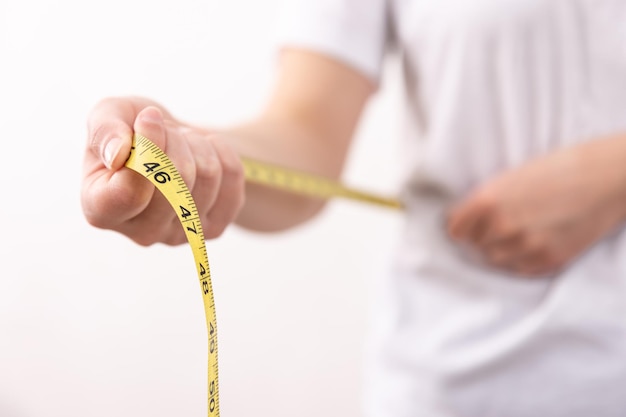
If you’re trying to lose weight, you might think you need to count calories and eat less, right? Well, that’s not necessarily the case, according to Terry Fairclough, a personal trainer and co-founder of Your Body Programme.
As a personal trainer, Terry has encountered many differing opinions on the best diet for weight loss. Should we count calories? Follow a low fat, low carb, or high protein diet? Should we fast, or eat small, regular meals throughout the day?
While these approaches can have their place, depending on body type, goals, and activity levels, the one thing no one should do is under-eat. We all know someone who severely restricts their calories to lose weight quickly. And while they might drop some weight, it’s not always a good thing.
A calorie deficit will lead to weight loss, but not necessarily fat loss, which is what most people are aiming for. The typical Western diet tends to be overly large, so many people need a slight calorie deficit only because they were overeating to begin with. However, under-eating is not the solution.
When we eat, our body breaks down carbohydrates into glucose, our primary energy source. If the glucose isn’t used for immediate energy, it gets stored as glycogen in the muscles and liver, each molecule accompanied by two to three water molecules. When we need a quick energy boost or haven’t eaten, glycogen turns back into glucose for fuel.
Cutting calories means losing stored carbohydrates and water, not fat. Long-term calorie deficits cause the body to hold onto fat and break down protein instead. Protein is active tissue that burns fat while at rest, so it’s essential to get enough calories from fats, carbs, and proteins.
Contrary to what some believe, we need fats in our diet. Fat is a long-lasting energy source, more efficient than carbs or protein. During exercise, fat is broken into fatty acids for our muscles. Without enough dietary fat, you won’t have the energy to exercise and burn off body fat.
Severe calorie cutting can also cause nutrient deficiencies, affecting the immune, liver, and digestive systems, and leading to various health problems and a slowed metabolism. Issues like fatigue, malnutrition, osteoporosis, anemia, hormonal imbalances, and fertility problems can arise from under-eating.
Additionally, extreme calorie deficits stress the body, leading to a release of cortisol, a stress hormone. Initially, cortisol might help with weight loss, but long-term stress causes the body to retain fat and break down muscle.
In summary, under-eating slows metabolism, increases fat storage, and can cause thyroid problems. It also impairs digestion, making it hard to absorb essential nutrients, affecting weight loss efforts.
Sleep is also important. Low blood sugar levels can trigger adrenalin release, disturbing sleep and affecting metabolism and overall health.
In conclusion, the key is to eat the right amount of calories for your body type, goals, and activity level. The Your Body Programme can help determine your specific needs. Instead of severely restricting calories, focus on nourishing your body with lean proteins, healthy carbs, and fats.
Terry Fairclough emphasizes that eating sufficiently and healthily, rather than cutting calories drastically, is crucial for effective, long-term weight and fat loss.